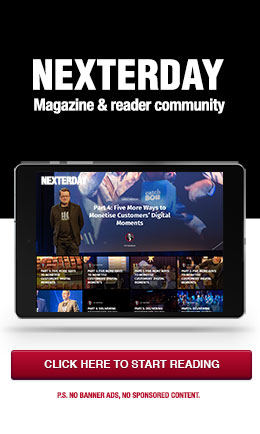Mobile Broadband Billing or Charging: Where’s the Market Headed?
Posted: December 22nd, 2010 | Author: Special Contributor | Filed under: Industry Insights | Tags: bill shock, billing, charging, mobile broadband, policy control | No Comments »By: Dan Baker, Research Director, Technology Research Institute
Call it the big payments divide. Depending on what country of the world an operator is in, it will favor one or two mobile broadband payment models—either a prepaid / charging or a postpaid billing / contract.
But what’s the trend? Will the saturated mobile markets, like the U.S. that favor the post-paid billing model, adopt more on-line charging for smartphones? Likewise, when operators in developing telecom markets like India adopt smartphones in a big way, will they launch mobile broadband services using a prepaid, postpaid or hybrid payment approach?
Since this is a big strategic issue for folks in the billing department, it’s worth laying out the advantages of the approaches.
The Advantages of Billing
Market success – A billing contract for all-you-can-eat data has been a winning formula for AT&T with the iPhone.
Contract-based sales – A subscription contract locks your customer into a long-term relationship that you can cultivate, renew and upsell against.
The magic of the word “free”– Customers instinctively feel that they are getting a better deal when network usage can be sold as essentially free (even though there are certain restrictions written in fine print).
Actual charges are out of sight and often out of mind – If you’re trying to promote mobile broadband as an addicting habit, having a billed plan is convenient because the user worries less about the ultimate charges.
An annuity the customer budgets for – Paying a certain fixed rate per month is something a customer budgets for, and it becomes an annuity for the operator.
Simplicity – Batch billing is technologically simpler than setting up network-based charging.
The Advantages of Charging
It’s how we buy things – Charging matches the way we live. If you want to buy content, it’s a simple matter of ordering it and paying down an on-line balance. There’s no mystery over what the actual cost will be. With charging, you always get a “receipt” for your purchase.
Convenience and impulse buys – We live in a world of convenience purchases. If you, as an operator, don’t make it easy for subscribers to charge things on the spot, you may be losing wallet share to over-the-top providers.
Bill shock – With a charging platform, bill shock becomes a mute issue because your customers can constantly track their purchases. This, of course, is further enhanced with policy control, which enables operators to inform the customer when certain limits are reached as required by the EU’s roaming cost control legislation).
Expense control – Charging becomes a convenient way to control your expenses, especially if your teenager is addicted to buying music.
Broadens the market – Not everybody qualifies to get a bill. Plus, a user’s low usage may make billing an impractical option from the operator’s point of view. In addition, you can offer service to teenagers and other high-risk user groups that the billing model can’t support at all.
Avoid bad debts – Charging eliminates one of the biggest operator headaches—collections, the losses and big expense required to chase down subscribers who don’t pay and outright fraudsters who had no intention of paying in the first place.
* * *
So which way are we headed? Toward more charging or more billing?
I think mobile operators will mix these strategies quite a bit in the year ahead.
Business customers will certainly favor billing because it’s what they’re accustomed to. Yet every business customer sees the value of being able to charge for something out of the ordinary. Maybe the business traveler wants to upgrade his airline seat on-the-spot or buy a meal on the plane. Charging that by swiping a handset becomes an attractive choice.
And we’ve yet to see all of the innovative apps that real-time charging and network policy control will give birth to. Ordering high QoS to see a television show in HD is a simple example. Thousands of other apps are on the drawing boards until LTE comes and charging/policy control technology matures in the network.
I predict that the countries with saturated mobile markets will move slowly but steadily towards more real-time charging—or billing and charging running in parallel. The fuss over “network neutrality” will get neutralized as people realize you can’t operate a first-class mobile network without controlling the five percent or so of bandwidth hogs who are spoiling the QoS for everybody else.
Billing or charging? You need both in your payments portfolio.
Dan Baker is the research director of analyst firm Technology Research Institute, or TRI, which has recently launched a new community website, the Revenue Assurance Roundtable. Since 1994, Baker has authored dozens of research studies in the BSS/OSS market. He contributes articles to VanillaPlus and writes a regular column for Billing & OSS World called Dan Baker Blog.






Leave a Reply